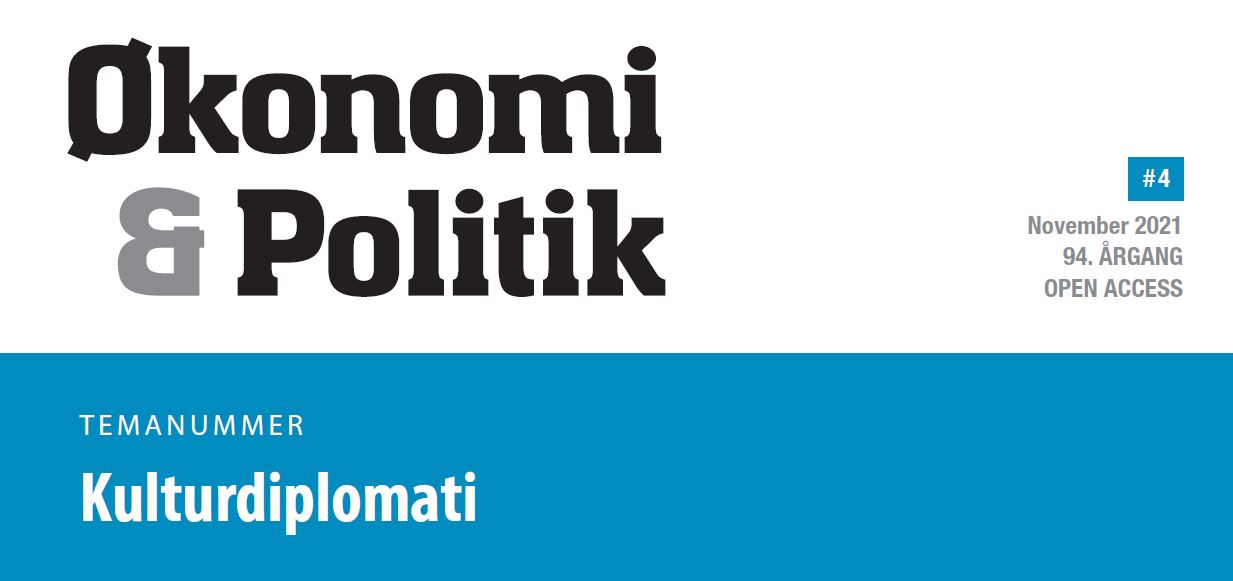What is the “culture” in cultural diplomacy? Three responses from Qatar
DOI:
https://doi.org/10.7146/okonomiogpolitik.v94i4.129464Resumé
Cultural diplomacy is a well-established branch of diplomatic practice. It is commonly understood as a governmental tool to mediate the relations between polities through mutual recognition of societal distinctions in ‘cultural’ domains, such as music, sports, education, or art. Examples may include celebrating the success of national athletes at international sporting events or the opening and hosting national language institutes in foreign countries. Given the “soft”, seemingly cushy, and eventually unmeasurable effects of such practices, cultural diplomacy often remains side-lined in serious studies of diplomacy that prefer to focus on conflict mediation or multilateral negotiations. This side-lining, I argue in relation to the cultural diplomacy efforts of Qatar – a young, emerging, and little discussed country in international relations – is short-sighted as it overlooks cultural diplomacy’s political edge in first imagining and then performing a national “culture”. Rather than analysing the effects or comprehensive contents of Qatar’s cultural diplomacy, I focus in this paper on its everyday enactment in state institutions – including the Qatar Tourism Association, Qatar Museums, and the Katara Cultural Village – to show how they are intimately involved in imagining the national (hi)story of the state. To get at that, I take a step back from programmatic analyses and simply ask: what is the “culture” in Qatar’s cultural diplomacy? Three responses emerge, two in the form of streamlined stories of national origins and futures, and one in the form of a characterisation of political style. In the first, “culture” is equated with authenticity, historical heritage, and romanticised accounts of what it truly means to be “Qatari”. In the second, “culture” is equated with having a strong and sustainable vision for the future where Qatar sits among the most developed states in the world as global cultural “hub”. In the third, “culture” becomes a way of doing things, here tied to the way in which Qatar is imagined to be moving forward on its journey to (international) development as guided by the vision of its ruling elite. Overall, the analysis shows that cultural diplomacy should be taken seriously as a domain of international political practice, as it is here that we can get an insight into the meeting of global and local politics, including struggles over authority, identity, and legitimacy.
Publiceret
Citation/Eksport
Nummer
Sektion
Licens
Tidsskriftet Økonomi & Politik er et open access tidsskrift, og alle artikler udgivet af Økonomi & Politik er licenseret under en Creative Commons Navngivelse-IkkeKommerciel-IngenBearbejdelse 4.0 International Licens, CC BY-NC-ND.

